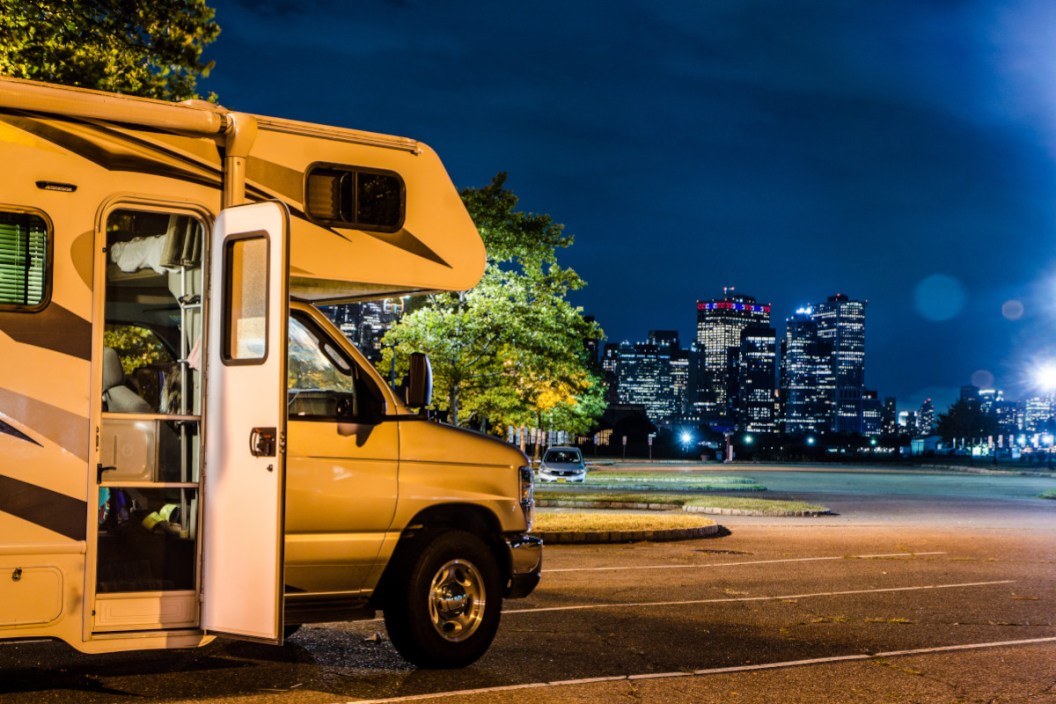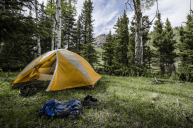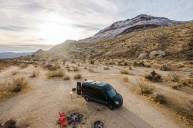The cost of everything is going up these days and within the last year I have noticed the price of a camping spot in an established campground has too. As a big fan of Michigan's state park campgrounds, I was a little irked when I saw the price jumped about $8 a night from 2021 to 2022. And odds are, more price increases are likely in the future. If you're like me, the rising costs of reserving a site might have you looking for an alternative place to stay during your road trips. There are options through dispersed camping in our National Parks and Forests sometimes. However, this type of federal land is not always available everywhere.
This is where stealth camping can come into play. It's a popular term in the full time van life community. At its core, stealth camping is free camping in your vehicle wherever you can find a legal overnight parking spot. Which is sometimes easier said than done. Don't worry, we're here to help with some prime stealth camping tips that will help you get a good night's sleep without paying an arm and a leg at an established campground.
What is Stealth Camping?
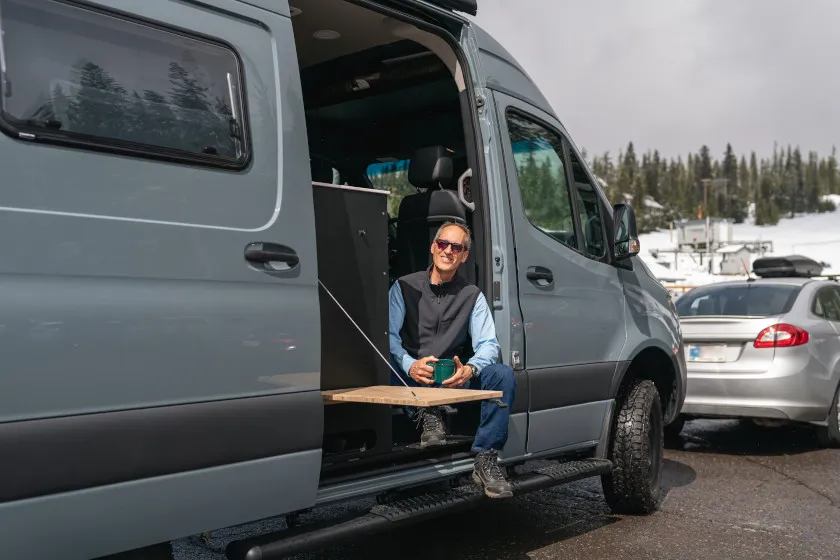
Fly View Productions via: Getty Images
At its core, stealth camping is just as the name implies. It is camping for the night in an area not really designed for it. In most cases, this just means sleeping in your vehicle for the night in a parking lot. Although some people also like to take advantage of street parking with no posted hours. Unlike boondocking in a National Forest or other public area, most stealth camping takes place in urban areas.
Stealth camping is very different from normal camping in that you don't want to make it obvious you are sleeping in your vehicle overnight. You aren't going to want to take out the grill or set up a bunch of lawn chairs and sit out next to your vehicle in the place you want to spend the night. That just defeats the whole point of this style of camping.
While stealth camping is most associated with modern conversion vans that are often specifically designed to be stealthy, the fact of the matter is that you can stealth camp with just about any rig. That includes larger RVs if you just use a little common sense. More on that later.
Is Stealth Camping Legal?
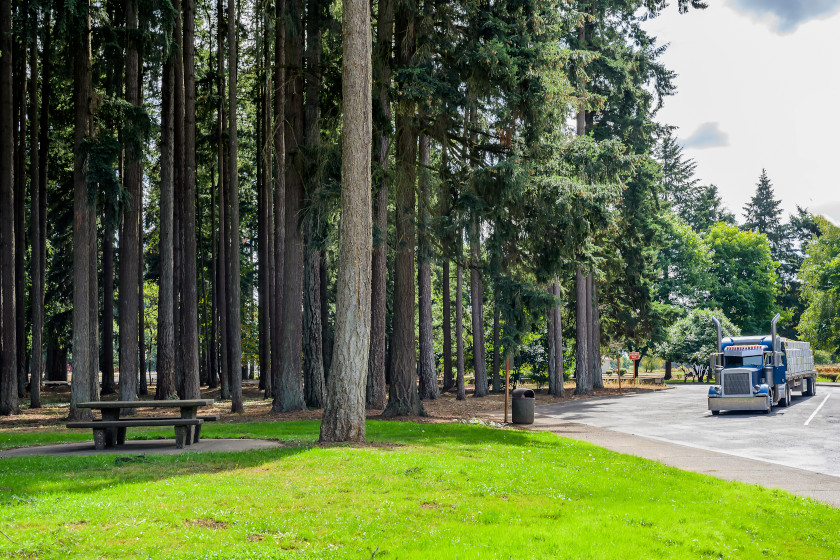
Highway rest areas can make for great stealth camping spots. vitpho via Getty Images
Yes and no, depending on where you do it. As the practice has become more popular with van lifers, more places have started to crack down on the practice, getting local law enforcement involved. One of the more famous stealth camping areas has historically been Walmart parking lots. However, the stores have cracked down majorly on this in recent years. Officially, the choice to allow stealth camping is left up to each store manager according to their corporate website. However, sometimes the hands of the store managers are tied anyway if the city or village has an ordinance prohibiting people from sleeping in their vehicle. The new Walmart that was constructed in my area about eight years ago didn't even wait. It had "no overnight parking" signs installed from the moment it opened.
Likewise, many residential neighborhoods now have similar ordinances and signs warning against overnight parking, especially in touristy areas like those frequented by RV enthusiasts and van dwellers. I've personally noticed crackdowns in other popular areas like highway rest areas and truck stops too. Aside from looking up the local ordinances for every little town you pass through, the easiest way to tell if camping isn't allowed is to simply look for the signs prohibiting it. They are usually posted at the entrances to a parking lot.
Stealth campers do take some risk if they park in an area without knowing the rules. There is always the chance a police officer will wake you in the middle of the night and ask you to move along. In extreme cases you might get cited for trespassing on private property, so it is best to use caution while stealth camping.
Where Can I Stealth Camp?
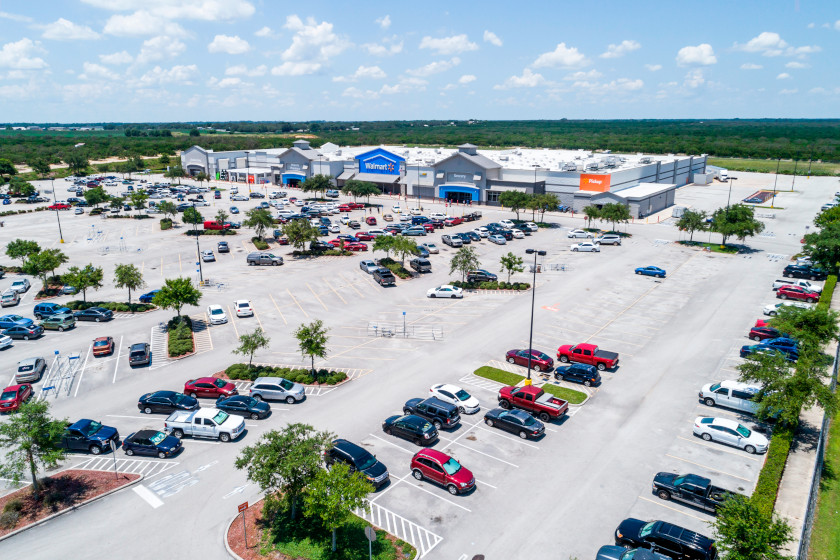
Walmart parking lots can work for stealth camping, but ask permission first. Jeff Greenberg via Getty Images
In many cases you can stealth camp anywhere there isn't signs prohibiting you using a parking space overnight. Finding one of these spots can be easier said than done, especially if you are trying to find one downtown in a larger city. Some of the more popular areas that people have discovered are as follows:
- Cracker Barrel: Some stores may be restricted by local ordinances, but many allow overnight parking. Many have dedicated RV parking spaces.
- Walmart: It's best to ask the store manager first if you can park overnight. Some stores make it obvious with "no overnight parking" signs as you enter the lot.
- Cabela's and Bass Pro Shops: There aren't as many of these around, but most will allow RVers and others to park overnight.
- Lowes: Some stores will allow overnight parking. Like Walmart, you might want to ask permission of the manager first.
- Home Depot: Another overlooked option that often allows overnight parking.
- Rest Stops: While noisy due to the highway, many rest stops do allow overnight stays. Check the signs on the way in. Others simply have a restriction on the amount of time you can stay parked.
- Residential areas: You'll need to watch for "no parking" signs on city streets, but they can be an option. Just don't park right in front of a house. It can make people nervous.
- Casinos: Most are open 24 hours a day, making them a viable option. Some do have their own dedicated campgrounds they want campers to stay in, so check ahead of time to see what their policy is on overnight parking.
- Near apartment complexes: Because there are so many people living in one location, there is often a lot of traffic in and out. Most residents won't look twice at a vehicle that's parked for one night. Probably not the best option for an RV. But should be fine for vans.
- Industrial parks: These areas are often very quiet at night, and most don't have signs prohibiting parking.
- Any 24-hour business: Just about any place that is open all night can be an option. You might want to ask permission at a gas station or gym first, but many have no problems with people overnight camping so long as it's only for one night.
There are many more areas that are possibilities. However, these are probably the best legal areas one can find outside of boondocking areas in National Forests or on BLM land in the country. In most instances, campers who own a small vehicle will be able to utilize more of these locations than someone driving or pulling a large RV. You don't need to have a low profile stealth van to make this style of camping work, but there is no doubt it helps. I personally own a Ram Promaster City cargo van with no windows that blends in nicely as a work van just about anywhere.
Stealth Camping Tips

Make sure your electronics are charged before parking in a stealth camping spot. Cindy Shebley via: Getty Images
Stealth camping is very different than staying in a campground and it's important to recognize that and not overstay your welcome. This is the ideal time to remember the principles of "leave no trace." Pack out all your garbage, don't park in areas that could be disruptive to traffic or to customers of any big box stores that grant you permission to park overnight for free. In most instances, it seems like problems arise when someone isn't being considerate with their stealth camping spot.
If you are in an RV, don't try to camp in a place that doesn't have the space for your rig. Additionally, leave the awning and slide outs folded. Don't put out a folding solar panel, generator, rugs, or camp chairs. If you're planning to cook, do it inside your RV and not on a grill outside. Most of these parking lots are not a campground, and many places only start prohibiting camping when people treat them like one. Remember that there are no hookups at these locations, so it doesn't make a lot of sense to linger there all day anyway.
Our best tip for stealth camping is to arrive late and leave early. For some areas, it is preferable to arrive after dark and leave as soon as the sun is up. Anything more is often overstaying your welcome. Speaking of overstaying, it's usually a bad idea to stay in the same stealth camping spot more than once. If you park in the same spot for more than a night, someone will probably notice. This only increases your odds of getting kicked out of a parking lot by security or police.
If you are in a camper van or other vehicle that is not an RV, it's not a bad idea to have some window covers for rest areas or truck stops where there is a lot of vehicle traffic. It just makes it easier to sleep if you don't have headlights sweeping over you constantly from the traffic through a place like that.
If you stealth camp in a residential neighborhood, try to avoid the richer upscale neighborhoods. On the flip side, try to avoid the rough ones too. Try to find a neighborhood that falls somewhere in between those two extremes. This is a time-tested safety tip that you'll hear shared by many van lifers.
Stealth camping isn't the most comfortable way to camp. But it is one of the best ways to save money during your adventures this summer.
For more outdoor content from Travis Smola, be sure to follow him on Twitter and Instagram For original videos, check out his Geocaching and Outdoors with Travis YouTube channels.
